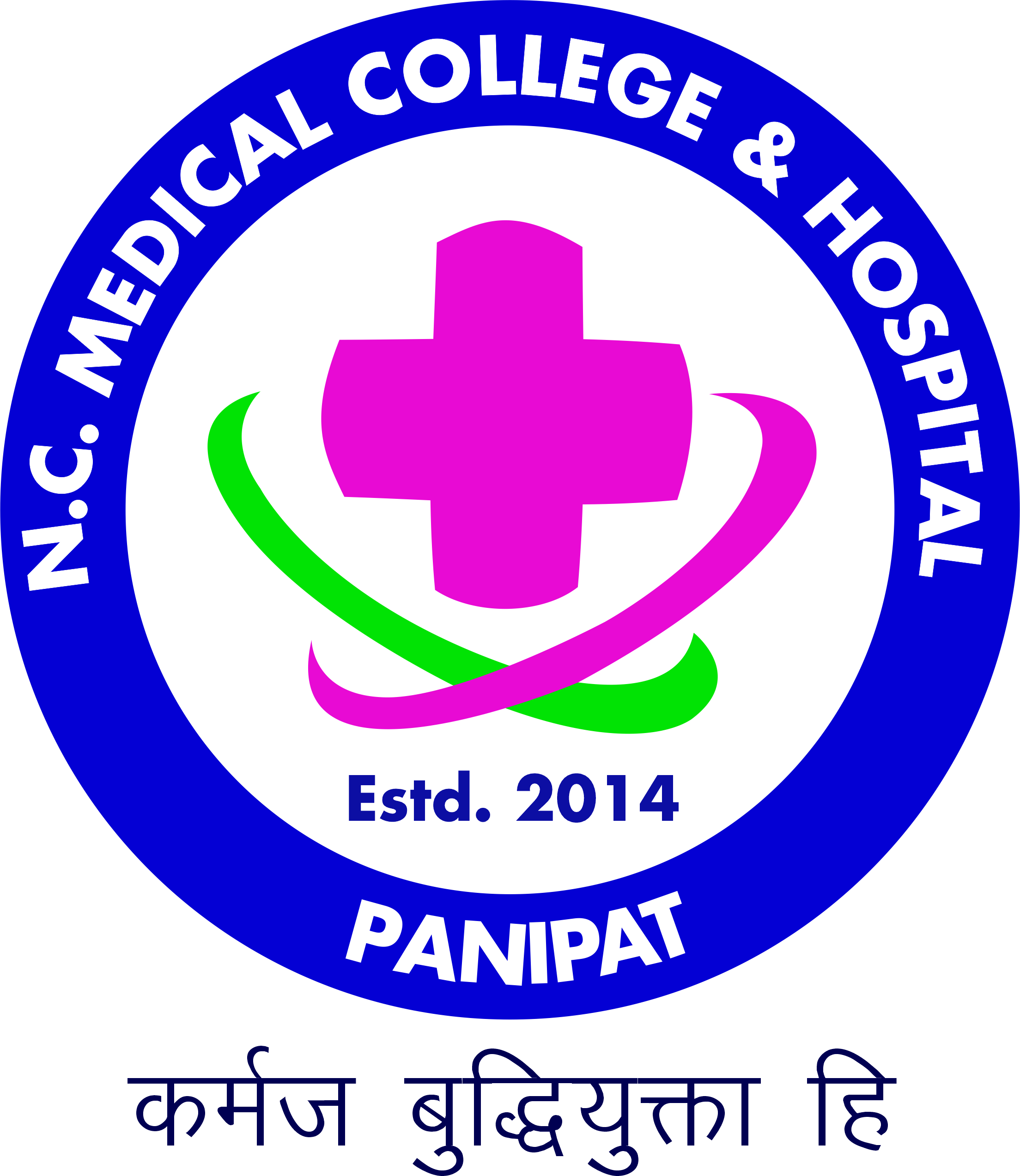Department of Forensic Medicine & Toxicology
GOAL
The broad goal of the teaching of undergraduate students in Forensic Medicine is to produce a physician who is well informed about medicolegal responsibilities in practice of medicine. He/She will also be capable of making observations and inferring conclusions by logical deductions to set enquiries on the right track in criminal matters and connected medicolegal problems. He/She acquires knowledge of law in relation to medical practice, medical negligence and respect for codes of medical ethics.
OBJECTIVES
KNOWLEDGE
At the end of the course, the student should be able to:
- 1. Identify the basic medicolegal aspects of hospital and general practice.
- 2. Define the medicolegal responsibilities of a general physician while rendering community service either in a rural primary health centre or an urban health centre.
- 3. Appreciate the physician's responsibilities in criminal matters and respect for the codes of medical ethics.
- 4. Diagnose, manage and identify also legal aspects of common acute and chronic poisonings.
- 5. Describe the medicolegal aspects and findings of post-mortem examination in case of death due to common unnatural conditions & poisonings.
- 6. Detect occupational and environmental poisoning, prevention and epidemiology of common poisoning and their legal aspects particularly pertaining to Workmen's Compensation Act.
- 7. Describe the general principles of analytical toxicology.
- 8. Medical jurisprudence in view of the Consumer Protection Act – wherein doctors have been covered under its ambit. They have both rights as well as responsibilities. Under medical insurance acts of negligence covered as well as rights for effective service delivery. [added in terms of notification published on 15.12.2008 in the Gazette of India]
SKILLS
At the end of the course, the student should be able to:
- 1. Make observations and logical inferences in order to initiate enquiries in criminal matters and medicolegal problems.
- 2. Diagnose and treat common emergencies in poisoning and manage chronic toxicity.
- 3. Make observations and interpret findings at postmortem examination.
- 4. Observe the principles of medical ethics in the practise of his profession.
INTEGRATION
Department is providing an integrated approach towards allied disciplines like Pathology, Radiology, Forensic Sciences, Hospital Administration etc. to impart training regarding medicolegal responsibilities of physicians at all levels of health care. Integration with relevant disciplines will provide scientific basis of clinical toxicology e.g. medicine, pharmacology etc.
INFRASTRUCTURE
- 1. Lecture theatre: Common Lecture Theatre shared with other Department.
- 2. Demonstration room: There are be two demonstration rooms (60 sq. m. area) fitted with strip chairs, Over head projector, Slide projector, white board to accommodate at least 80 students at a time.
- 3. Museum: a museum (175 Sq.m. area) to display medico-legal specimens charts, models, prototype fire arms, wax models, slides, poisons, photographs etc. with seating arrangements for 40-50 students. All the specimens shall be labelled and at least 15 copies of catalogues for student use be provided.
- 4. Laboratory: a laboratory (200 Sq.m.area) for examination of specimens, tests and Forensic histopathology, Serology, anthropology and toxicology.
- 5. Autopsy Block: There shall be an autopsy room (approx. 400 Sq. mt.area) with facilities for cold storage, for cadavers, ante-rooms, washing facilities, with an accommodation capacity of 40-50 students, waiting hall, office etc. The location of mortuary or autopsy block should be either in the hospital or adjacent to the hospital in a separate structure and may be shared with the department of Pathology.
- 6. Departmental Library: A Departmental library-cum-seminar room (30 Sq.m.area) with at least 80-100 books. However, not more than two copies of anyone book shall be counted towards computation of the total number of books.
- 7. Research: There shall be one research laboratory (50 Sq.m.area) for research purposes.
- 8. Accommodation shall be provided for the staff as under, namely:
- Professor & Head of the Department- (18 Sq.m.area);
- Associate Professor/Reader-Two rooms (15 Sq.m.area each);
- Asstt. Professor/Lecturers -One room (12 Sq.m.area);
- Tutor/Demonstrators-One room (15 Sq.m.area)
- Department office cum Clerical room – one (12 Sq.m.area); and
- Working accommodation for non-teaching staff (12 sq.m. area)
- Departments
- Anatomy
- Physiology
- Biochemistry
- Pharmacology
- Microbiology
- Pathology
- Forensic Medicine &Toxicology
- Community Medicine
- General Medicine
- Respiratory Medicine
- Dermatology, Venereology & Leprosy
- Psychiatry
- Paediatrics
- General surgery
- Oto-Rhino-Laryngology
- Ophthalmology
- Orthopedics
- Obstetrics & Gynaecology
- Anaesthesiology & Critical Care
- Radio-Diagnosis
- Dentistry
- Casualty
Admission Enquiry Form
- Contact us
- ncmedicalcollege.panipat@gmail.com
- Admission Helpline: 0180-2579061
- Phone: 0180-2579081, 0180-2579061
- Ext: 280,281
- Fax: 0180-2579081
- N.C. Medical College & Hospital, Panipat-Rohtak Road, VPO Israna, Panipat-132107 Haryana (India)
Brochures
View our Medical prospectus of
brochure for an easy to read guide on
all of the services offer.
